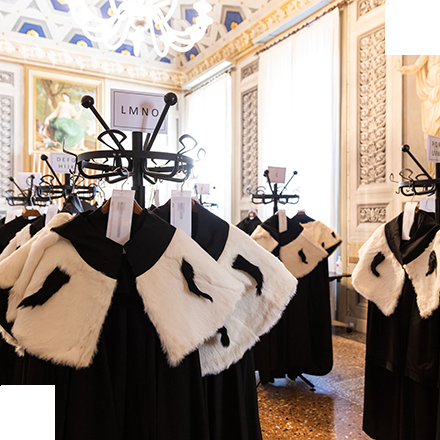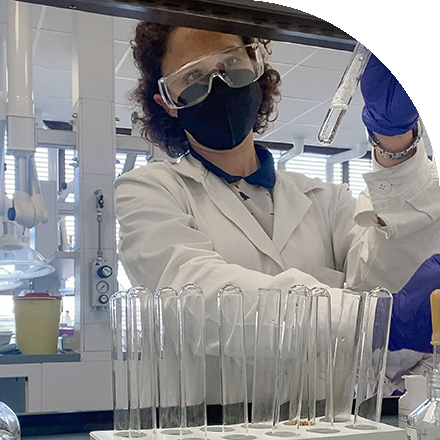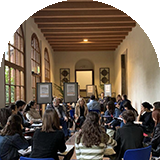Università Cattolica del Sacro Cuore Largo A. Gemelli, 1 - 20123 Milan
Réunion Brussels
Lombardy Region Headquarters - BrusselsAlessandro CHIODINI, Project Adviser at the European Commission
Sometimes you wonder how you ended up here, and you take a look at the past to understand the present. The past is precisely: bachelor's, master's and doctorate. Degree in Food Science and Technology and European Master at the University of Milan and PhD at the Piacenza campus of Università Cattolica del Sacro Cuore.
From a small provincial town to the heart of Europe, the step is short, or at least not too long; The cardboard suitcase has been replaced by a rigid plastic one and a ticket from a low-cost airline. Thanks to the Doctorate, which included a period of training abroad, I arrived in Brussels in September 2007 and continued to work on my doctorate. In 2011 I obtained the title of Doctor in Agrisystem with a thesis on the risk assessment of pesticide residues in food. When I got my doctorate there were just over a dozen of us, now there are 133 Agrisystem doctors.
Of those ten, from 2011 to today, some have remained to work in Italy, others in Europe and some have gone further. We are still in contact with many of them; this is made easier by the fact that Brussels is a nerve center of interest, so sooner or later you will get there. The feeling of cohesion that I felt during the doctoral years is still strong in us.
The study of the agri-food system, which is increasingly complex today, requires new skills: the scientific-productive aspects must be integrated with the economic-legal aspects, this is exactly what the Agrisystem doctorate is: bringing together students from faculties such as economics, law and agriculture to provide them with a teaching base, which takes place in the first year of the doctorate, common to the three research fields and then deepen the issues related to their field of study research.
The fact of having to go back to school, to have to learn notions of other disciplines, was fundamental to be able to better understand the different facets of the agri-food system.
After my PhD, I continued to work in the agri-food sector, first as a scientific project manager for a non-governmental organization dealing with food safety, nutrition and the environment, then as a project adviser for the Research Executive Agency (REA), one of the six executive agencies funded by the European Commission, and deals with the funding of the Horizon 2020 framework program, always in the field of food safety and nutrition.
Lidyia SIMOVA, Representative of the National Assembly of the Republic of Bulgaria to the European Parliament
In 2004 I left Sofia to enrol in the Faculty of Political Science at the Catholic University of Milan.
The choice of the country where to continue my studies was not accidental: I already had a diploma from the Italian High School in Sofia. Being a special school, the high school still works in close collaboration with the Italian state which, for its part, procures Italian teachers who come to Sofia to teach literature, history, geography and even mathematics in Italian. Having taken high school exams similar to those of my peers in Italy, I was able to enrol in the undergraduate programme in Political Science and International Relations.
We arrived at the Cattolica in about ten Bulgarian students and we were among the first of our compatriots to do so, in fact, the university administration staff seemed a bit surprised by our arrival en masse, since at that time there were a total of 3 or 4 Bulgarian students attending the Milan campus! Bulgaria was not yet part of the European Union and this entailed some obstacles that fortunately were not insurmountable, also thanks to the scholarships that could be obtained.
After the undergraduate degree, I continued, still in the Faculty of Political Science, with the master's degree in Political Science and European Integration, which I successfully completed in February 2010. In the meantime I also did an internship at the Representation of the European Commission in Milan and this experience inspired me to try to work with or in the European institutions in the future.
In 2011 I decided that it was time to return to Bulgaria, since in Italy the professional prospects for recent graduates in humanities were not encouraging. It took me a while to pursue a career in my favorite field, but I finally succeeded. In 2014 I started working as an expert at the Committee on European Affairs in the National Assembly of Bulgaria (the parliament). In the winter of 2017, I had the opportunity to be part of the Deputy Prime Minister's Cabinet responsible for preparing the Bulgarian Presidency of the Council of the EU in the transitional government. After my return to the Parliament, I was appointed as the Bulgarian Parliament's representative to the European Parliament for the period 1 July 2017 - 31 December 2018, which took me to Brussels.
I am grateful to Università Cattolica for the welcome and opportunities it has given me, and especially for the professional training. Students often wonder if certain courses or books will really be useful in their future work activities and I noticed with satisfaction that in my case the answer was mostly yes.
Sophie FALSINI, Desk Officer for Cooperation and Development - Permanent Representation of Austria to the European Union
I still remember the day I enrolled, when I improvised a "Russian and English" answer to the question "What languages would you like to study?" 5 years later I find myself in Brussels, dealing with Africa, the Pacific and the Caribbean at the Permanent Representation of Austria to the European Union and I think that was one of the best choices I could have made.
They asked me to write my story, describe my journey, tell "how I did it". But there's nothing special about my story, because the people who helped me get here were special.
I graduated in Languages and International Relations at the Catholic University of Milan. The three years of the bachelor's degree opened my eyes to the beauty of Russian literature and the fascination of the Middle East, and the combination of geopolitics and history allowed me to look at the world from another perspective. A few days before my bachelor's degree, Prof. Giovanni Gobber, my thesis supervisor, suggested that I obtain my master's degree at the German University Viadrina. A few hours later, blindly trusting a professor I have always respected, I had already downloaded all the documents necessary for enrolment in the degree course in European Studies. However, before starting a new chapter in my life, I decide to take a gap year and let myself be carried away by chance. The first semester after graduation was spent at the University of Freiburg (Germany). There I continued my language studies and, after months of testing myself in a native speaking class, I was offered the opportunity to do several internships in Russia during the summer. In February I pack my bags and leave for St. Petersburg. At university I enrolled in courses on history, mathematics and geopolitics, not so much because of the relevance of these issues but because I wanted to "binge" as much as possible on a language that has never ceased to fascinate me. After a few months I decided to shake things up and started doing an internship at the international office of the University and at a kindergarten. Months go by and with the white nights of St. Petersburg just around the corner, I set off for Moscow. Accompanied by the heat and unexpected acquaintances, I spent the summer working in the international politics department of a famous newspaper.
In October I returned to Germany and from that moment on I was officially a German student. I specialize in Eastern European studies, I do an Erasmus in Estonia and in February 2016 I am finally ready to do some internships. Always interested in human rights, I worked for a few months with Human Rights Watch and from September to December I decided to spend some periods of thesis research in Ukraine to study the internal refugee crisis. In the meantime, I started working for the Uzbek-German Forum for Human Rights, an Uzbek NGO that monitors human rights violations in cotton fields. Day by day I begin to realize more and more how much my work and the fate of all those NGOs I have come to know was intrinsically linked to a rainy and windy city in Belgium, Brussels. Determined that I wanted to understand the workings of the institutional machine from the inside, I applied for the "Blue Book" internship of the European Commission. In March, I started working for the Directorate-General for Justice and Consumers (DG JUST), dealing with justice reforms in the Balkans and Eastern Europe. Time passes quickly and after 5 months it is time to say goodbye and look for the "real" job. Several applications later I was hired as a junior researcher for the Security and Defense program at the Roman think-tank "Istituto Affari Internazionali". After enjoying the beauty of Rome, my hometown, I set off again for Brussels. An unexpected phone call told me that I would be working for the Austrian Foreign Office and in particular that I would be part of the team that would lead Austria towards the presidency of the Council. And here I am, after years of study and internships, at the Permanent Representation of Austria to the European Union.
My journey has been anything but linear, but it has been the beauty of taking back roads that has given me the chance to discover and discover myself. I was able to test my stubbornness, my recklessness and my desire to do, but thinking back to my first day at the Gnome cinema, I think that it is above all thanks to the many people I have met along the way that I have come this far. And that is why I thank them.






